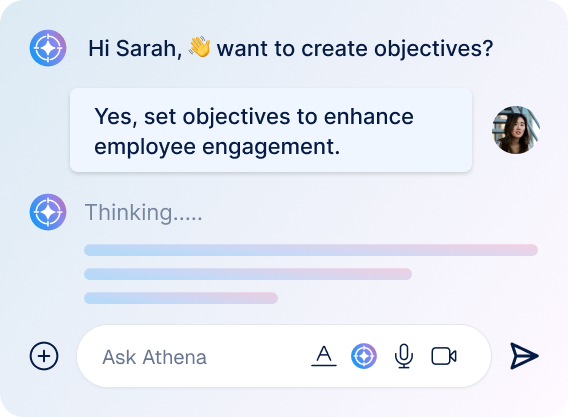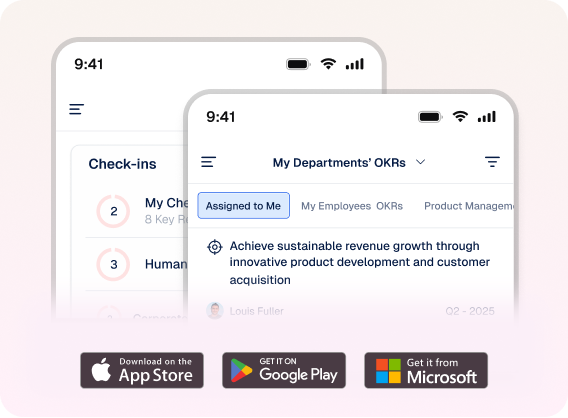Employees leave their jobs because of a number of reasons: it could be because of a bad manager, lack of recognition, business practices– the possibilities are, unfortunately, endless.
It’s crucial to examine the root cause of an employee’s resignation. When an employee joins a company, they do so with the intention of a career. Employees select a company to work at in the hopes that it aligns with their ideals, skill sets, and ambitions.
So, when something goes wrong and they decide to leave, it’s important to take a look at why.
Here are the top 7 reasons why employees leave their jobs:
- A bad boss
- Non-competitive benefits and Compensation
- Nature of work
- Wrong culture fit
- Employees are overworked
- Employees don’t feel valued or recognized
- Other good employees leave
Let’s take a closer look at these reasons, and companies can avoid them for better employee retention and a more positive company culture.
1. A Bad Boss
We’ve all heard that saying. For anyone who’s dealt with a difficult boss, it’s very clear that bad managers can strongly impact employee retention.
A bad boss is the number one reason why employees quit their job. Employees don’t need to be friends with their boss, but they need to have a good rapport with them. A boss is a part of the employee’s daily lives at work for a significant amount of time. And so, if this employee-boss relationship isn’t a good one, it can be a very unpleasant situation for the employee to be in, draining them off of their energy and motivation to work. When the situation is such day in and day out, it would undermine the employee’s engagement, confidence, and commitment.
Job satisfaction and the freedom to make decisions
There’s a strong connection between employee job satisfaction and the freedom to make decisions about how to do their jobs. Micro-management and a suffocating work environment leads to higher attrition rates. In short, most people leave because of their boss and the company culture, not because they dislike the company or job.
Be an empathetic manager
Employees are more likely to stay in their job when they have a manager who is empathetic. A manager or a boss must care about their team as individuals, not just as employees. When people are treated well, they will be willing to go the extra mile.
Managers must prioritize spending time with their team. Schedule meetings with each member of the team every week or every two weeks to stay updated on what they’re working, the workload and provide guidance if they need any. Ensure that their achievements are recognized.
2. Compensation and Benefits are Not Competitive
Non-competitive compensation can be a deal-breaker for employees. It’s important that employees are offered competitive benefits and salary packages for the turnover is a direct result of employees not being offered what they deserve in terms of recognition, or having been (intentionally or unintentionally) misled about the benefits they were meant to receive.
If the organization happens to be a small and growing business that is not able to offer highly competitive salaries and benefits packages, there always are options to offer non-cash incentives and rewards by virtue of reward and recognition programs using cost-effective solutions.
Stay updated on current employee pay scales
Employees stay up to date on what the pay scale is for their experience and skills, therefore, it goes without saying that top management of organizations must stay updated on the pay scales for various positions too. For if they don’t, then the employees will leave the company and move to another company where they will be compensated better for their skills and experience.
3. Nature of Work
When so many hours a day are spent at work, five days a week, every month, year in and year out, a good part of one’s sense of purpose, meaning and accomplishment in life gets tied to work. Therefore, it’s important that the work one does, whatever it might be, is meaningful. The nature of the work itself is a top contributor to job satisfaction. So when employees are unsatisfied with the work they do, it can easily translate into retention issues for the company.
It is not fair on employees to be moved around to whichever slot that needs to be filled at a given time. People want to have a job that they feel they are good at, or can be good at, and matches their skillset and competencies, and will make them feel that they are contributing to the company and making a difference in some way.
Look for ways to make work exciting
So, if employees are not happy with the work that they do, then it’s on the manager and the organization to find out why. It’s important that the employee understands how valuable their contribution to the company is and to encourage their efforts. Get their feedback on what could help them feel more relevant and make work more exciting, something they would look forward to. Of course, it might not be possible to address all of their issues, but it would be possible to balance the current tasks with some new ones to make work more exciting and minimize the monotony of work.
Find ways to utilize their skills more effectively, and if their experience and knowledge exceeds their current role and position, consider giving them a promotion. Make sure the employee has a career path they can work towards. The more valued and appreciated an employee feels, the happier and more motivated they would be, and stay on in the organization.
4. Wrong Culture Fit
It’s human to feel to want to belong to a group of like-minded people and contribute to an effort or cause that aligns with one’s beliefs and values. For example, for someone who believes in environmental sustainability, they would love to work for a company that believes in leaving a low carbon footprint and maintaining environmental sustainability. Therefore, it’s very important for employees to feel a sense of belonging in their workplace.
Culture fit should be a part of hiring strategy
Employees who love where they work and their jobs, are more satisfied and perform way better and at a higher level. If someone loves their job but does not like where they work, and feels like they are at odds with the company culture, they tend to not perform very well. This can have a negative impact on the organization’s bottom line. Which is why, assessing whether a prospective employee will be a good culture fit should be a part of the hiring strategy.
5. Employees are Overworked
Stress and the feeling of being overwhelmed comes with most jobs. But burn-out is a different story. Overwork can burn out the best of employees. In fact, it’s the best employees, the most committed and capable and the most trusted, who are overloaded with work the most.
If they find themselves taking on more and more work, with no recognition, appreciation, promotion or raises, they would feel like they are being taken for granted. Which would lead them to go looking for greener pastures.
Encourage employees to take a break from work to recharge
Burnout is bad for employees and organizations. An employee who is burned out, lacks energy, motivation and the drive to work. The manager and organization must help avoid burnout by giving them a break, encouraging them to take some time off to recharge and rejuvenate.
6. Employees Don’t Feel Valued or Recognized
Not getting recognition is one of the top reasons for why employees leave their organizations. Lack of recognition leads employees to leave their current employer and go looking for new opportunities.
Receiving a paycheck isn’t enough. It’s natural, as a human being, to want to feel appreciated.
Even the most selfless employees want to be recognized and appreciated for a job well done. It is very human to want that. Nobody wants their efforts to go unappreciated, especially when they are putting in extra hours and are working extra hard to get great work out.
Receiving a paycheck isn’t enough for employees to be happy. Acknowledgment of their contribution to the positive growth of the team, department or company will go a long way toward their job satisfaction.
Appreciate employees for a job well done
When employees are not appreciated for a job well done, the organization fails to motivate them, and also fails to bring out the best performance in them.
Just a simple “thank you” or “great job” can go a long way. It can do wonderful things to an employee’s motivation and performance. And so, it’s very important for managers and organizations to let employees know when they’ve done something well that the organization and team should be proud of.
7. Other Good Employees Leave
Just as the saying “People don’t leave jobs, they leave bad managers”, the opposite is also true. People stay in a job because of a well-liked manager. So when this well-liked manager leaves the organization for a new job, employees may no longer feel the connection to the organization as they once did, and would want to leave too.
It could then trigger a series of “notice periods” because nobody wants to be part of, which in their minds, is now a “sinking ship”.
Create a positive ripple effect: retain the best employees and the others stay too
It’s not always possible to keep a great employee from leaving, or from others leaving too. It’s possible to get employees to sign a contract, but it’s expensive and often backfires — not the best way to retain employees. Instead, treat the employees well and acknowledge and appreciate top employees. Just as how when the best employee leaves can have a ripple effect in the organization, retaining the top performers of an organization can also have a ripple effect in the organization.
There could be several reasons for why employees leave an organization. The most important thing is to be aware of these situations and for an organization to make sure that there are ways to keep employee turnover under check.
There are many reasons an employee might want to leave their position– but when a company is aware of these reasons, they can be avoided. Ensure that you are communicating with your employees regularly, and even sending out satisfaction surveys to check in with employee mindset and perspective.
It takes a committed and involved leader to provide a conducive work environment where employees feel motivated and have the right resources and tools to succeed personally and professionally.



